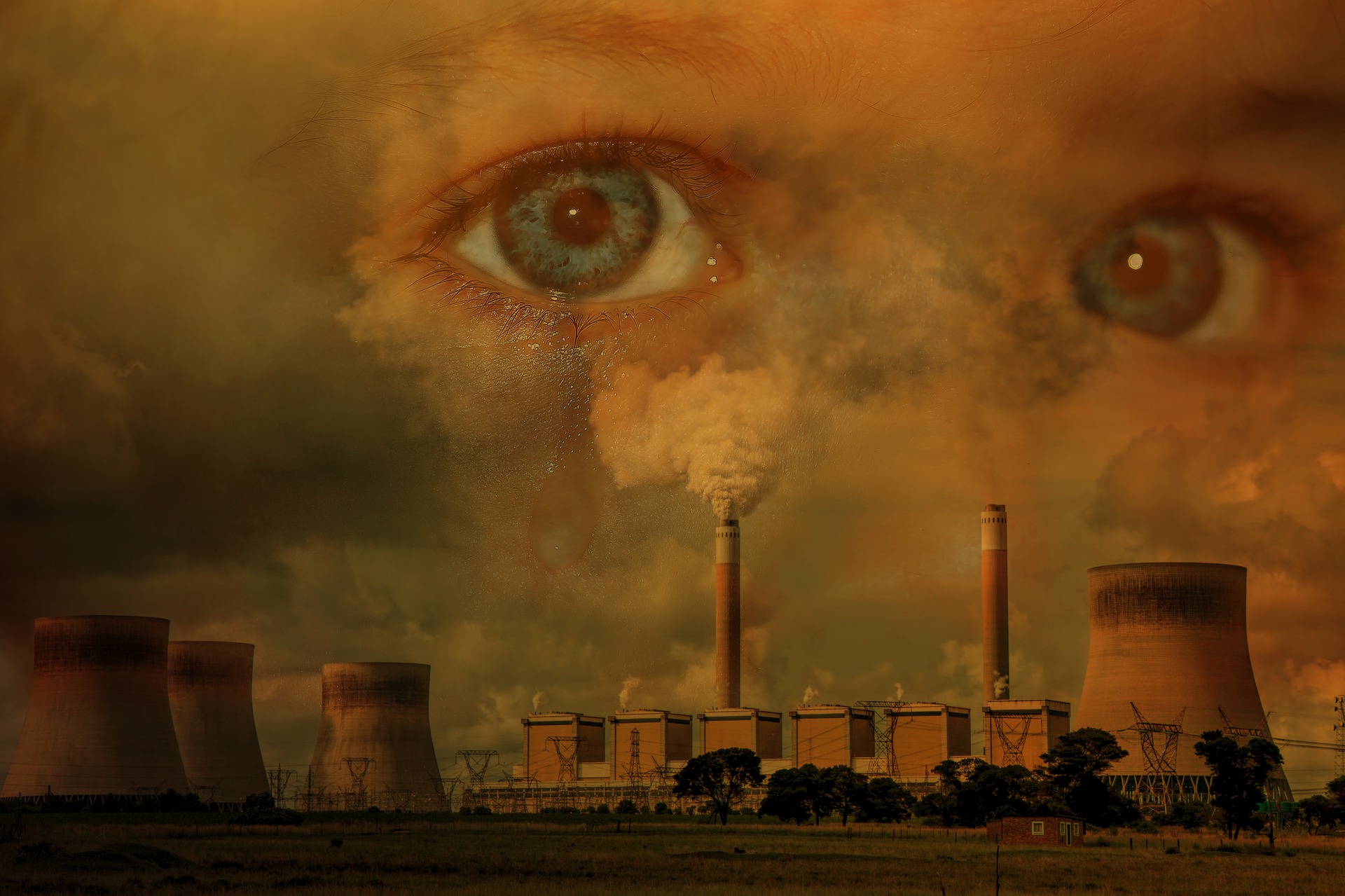
Science has pretty much demonstrated that greenhouse gases absorb and radiate the earth’s naturally generated heat and release it over time, and that these gases are responsible for about two-thirds of the total energy imbalance that is causing Earth’s temperature to rise. Air pollution, in the forms of smog and soot, dirty our air and cause or contribute to a host of medical problems. And we know that the most serious pollution comes from the burning of fossil fuels.
There is, however, a more basic cause of pollution that has nothing to do with any of the above, yet is generated by humanity and permeates all levels of nature and our relationships with each other.
It is what we think.
The Field of Thought
Philosophy and religion, science, mathematics, and wide ranges of human interrogation have examined over the millennia the function and power of human thought. And what we know is that thought is a force all unto itself. It drives us to learn about our world, to create, to advance knowledge, to examine our inner selves. It has such strength that it exists within the human consciousness as a force that influences the entire system of nature. Some have proposed that thoughts are “things” that can cause good or harm within the field of consciousness others.
“Both poverty and riches are the offspring of thought.”
― Napoleon Hill
Motivational speakers emphasize the importance of visualization, belief in self, mentally rehearsing for job interviews, and so on. An interesting experiment by a basketball coach demonstrated that players who visualized making baskets improved their performance almost as much as those who actually practiced. Quantum physics is further clarifying the power of thought through experiments such as Schrodinger’s Cat.
The Holy Zohar tells us that “everything is clarified in thought.” Humanity, like the animals that we are, are instinctual. What takes us above the beastly level of existence is the gift of thought, our ability to remember our experiences of the past and to use what we learned to craft our future. In fact, the only free choice that we have is at that moment when our thinking clarifies the intention behind our actions and makes this distinction: Will this action harm others or not? This is the essence and purpose of our use of the gift of thought.
This is so because we are part of the integral and deterministic system of nature and we are subject to her laws. The principle law or nature is altruism, expressed in the adage, Do unto others as you would have them do unto you. Nature demands that we love one another and when we do not, she lets us know. We are now facing her storming, flooding, burning, quaking and erupting as she shakes herself like a dog, so to speak, in order bring back altruistic balance.
Thought Changes Us and the World
“It is now recognized that the environment, and more specifically, our perception (interpretation) of the environment, directly controls the activity of our genes… When we change our perception or beliefs we send totally different messages to our cells and reprogram their expression.“
Bruce Lipton, PhD, Developmental Biologist
We know from research on the brain and on early learning that everything new that comes into our awareness changes the neural pathways within the brain. Thinking and learning continually change us as we expand and alter our worldview. Certain traits and talents are passed down through the generations. Specific illnesses appear in familial lineage.
The particles that create pollution of the thought field are hate, criticism, racism, violence, war-mongering and all other kinds of separation that we generate with our thoughts. This “smog” is the breeding ground of the polluted state of the collective consciousness, or the general field of human thought.
So it turns out that solving the problems of the 21st century is not up to governments or scientists or religions or educational institutions. It is up to us, each one of us, and we will do it when we learn to manage our thoughts. Every time I judge, or demean, or rail against someone who thinks the opposite of what I think, I am polluting the general consciousness, the general field of thought. When I am able to listen, to make small concessions, to try to bridge the gap between opinions, I dissipate some of the mental smog.
This isn’t particularly easy inner work. It takes practice, especially during these times of great polarization when we feel ourselves hurtling toward probable extinction. It takes recognition of the importance of living in alignment with the laws of nature in order to correct nature. It takes courage to take on the burden of loving humanity above ourselves. But by learning to do it, we can save ourselves.

